
The men build too many walls and not enough bridges.
Isaac Newton

During the last 50 years, Freemasonry has lost most than 50% of its members in USA.
In France and elsewhere in Europe, the number of Freemasons has increased, but disagreements of all types are commonplace. They counteract the reasons for our commitment to this movement. The influence of Freemasonry on society is declining everywhere. I invite you to discuss the meaning and role of our movement on the site.
Introduction
Freemasonry is an initiatory movement that some people confuse with a religion, others with a political movement, or an opportunity to get together with friends to philosophise, or even a charity group. Yet for many Masons it is primarily, if not solely, a system of morality that is both veiled and explicit through allegory and illustrated by symbols. All these steps are respectable and partly reflect the role of Freemasonry, but it was not created primarily for such.
- If Freemasonry defines itself as a congregation of believers, it ceases to be unique and irreplaceable.
- When it attempts to play the role of a political party or trade union, it fails to perform its specific task. Also, it lacks the appropriate tools to be truly effective in these areas.
- Its operating rules prevent it from becoming a great debating club.
- If Freemasonry limit his activity to the charity, NGOs and other charitable organisations surpass it.
- With "high moral value" being the condition for admission to Masonry, it is conceivable that work in the lodge serves to develop it, but the founder'sAnderson's Constitution still assigns other tasks to it.
- Someof the lodges, which have beentransformed into an instrument for the promotion of personal interests, betray the ideals of Freemasonry.
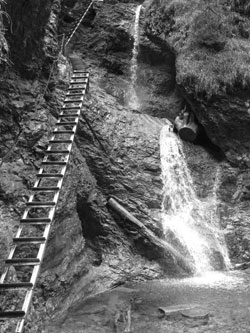
Freemasonry certainly offersits members a spiritual and moral perspective, but not necessarily a religious one. It encourages them to become more involved in their communities, but is neithera substitute for other parties, trade unions, associations, nor the university. Lastly, it should not be an interest group. Such confusion lowers the impact of Freemasonry and it is not surprising that in the last 40 years it has lost nearly half its membership, especially in the United States. (1)
However, its decliningappeal is not solely due to such errors of understanding, or to Western society's supposedly declining interest inspirituality. If this decline were real, sects and other new paths to transcendence would not be so popular, especially in the USA.
We must not forget that almost since modern-day Freemasonry was founded in 1723, proponents of centralist and authoritarian thoughts have expressed their hostility, even hatred, of its humanistic and egalitarian nature and freethinking spirit. The first Papal Bull dates from 1738... followed by more than two centuries of slander and destabilisation attempts that have blurred its image even further. In Europe, we retain the memories of attacks on Freemasons and persecution by the Nazis and the Communists of the Soviet bloc. Thus, it is not surprising that the uninitiated, and sometimes even Freemasons themselves, no longer understand the deeper meaning and the specific sense of this movement.
Modern-day Freemasonry encourages its members to work on themselves and stand accountable for responsibilities towards humanity in a way that no other organisation does. It offers them a special method of initiation. However, to determine whether Freemasonry still makes sense in the 21st Century, we must return to its fundamentals.
15th – 18th Centuries: Pivotal period in Western history
To grasp the meaning of Freemasonry in today's world we must first recall the circumstances of his birth three centuries ago.
Freemasonry arose during a time of change in European civilisation when four lodges in London deemed it useful, and even necessary, to band together and create a traditional Masonic initiation with updated content.
- During the Renaissance in the 15th and 16th Centuries, Europe rediscovered the powerful ancient Greek-Roman culture.
- The technological leap in overseas shipping linked the continents and enabled the discovery of new lands. At the same time, trade developed in Europe through postal relays, created in the 15th Century for military and administrative correspondence, later opening up to private letters. L'invention de l'imprimerie a enrichi ces échanges.
- Meanwhile, many sciences underwent radical development and new disciplines came into being. Research overcame a great deal of prejudice, its methods became more reliable, and its results verifiable.
- All of these advances improved the knowledge of most world civilizations, past and present, and lay the foundation for greater understanding between individuals and far-away cultures.
The acquisition of this knowledge has led, among other things, to the creation of the Encyclopaedia.
This wealth of information and experiences, both personal and collective, hitherto unparalleled, brought about a leap in the study of man's place in the universe and the universe itself. It laid the foundations for a new stage of development of mankind.
Birth of a planetary civilisation
Up until this time, people were divided into families, clans, tribes, villages, countries and various other groups, limited in time and space, but now began to see themselves as stakeholders of global economic, political and cultural entities. This view did not dissolve the subsets above, but made it clear that men and women were also parcels of humanity, a sort of body comprised of all humans. This new concept of "humanity," which gradually seeped into "palpable" reality, led to the "Declaration of the Rights of Man and the Citizen," in the 18th Century and the "Universal Declaration of Human Rights" in the 19th Century, which placed the Individual under the protection of the whole community. In the 20th Century supra-national courts emerged judging a range of "crimes against humanity". Today, France is trying to get the UN to accept the Universal Declaration of Humanity Rights. What will be the next expression of this philosophy?
Ways to create a global civilisation
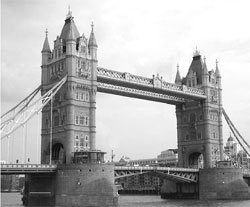 The formation of a planetary entity can occur through the domination of one country or civilisation upon others, either by building a multicultural humanity, based on respect for differences. The first method has existed and been perpetuated since the dawn of time in clans, countries and religions. The second is seen less frequently.
The formation of a planetary entity can occur through the domination of one country or civilisation upon others, either by building a multicultural humanity, based on respect for differences. The first method has existed and been perpetuated since the dawn of time in clans, countries and religions. The second is seen less frequently.
The writers of Anderson's Constitution seem to have been convinced that sharing the potential of humanity in its diversity may have been a prerequisite for the success of "globalisation" as it came into existence.
How have they expressed this? How can their heritage contribute to the success of the peaceful building of a multicultural global civilisation?
The founders of modern Freemasonry were some of the most intellectually enlightened thinkers of their time. Many of them belonged to the Royal Society of London for the Improvement of Natural Knowledge. They were scientists and philosophers. They lived during the days of the French Enlightenment. They had the intuition, and most likely also the means to rationally understand the spirit of their time and translate it into action. It's almost as if the method of initiation was redesigned in the 20th Century by Einstein, Bergson, Freud, Marie Curie, Ghandi and a few of their other peers...
To capture the wonderful wealth of knowledge accumulated by previous generations, the greatest number of their contemporaries and their successors, theybrought rituals and symbols together, governed by specific rules of a system of initiation. They did not treat this knowledge, opinions and practices from an historical perspective. They did not set it out in a logical form, but used representation by easy-to-remember images. Unlike "real" encyclopaedias, Masonic symbols and rituals did not describe the knowledge, they were content to mention them and draw the links between them and other civilisations. In addition, these rituals and symbols contained instructions for applying all of this knowledge to create a "new humanity".
The origins of Masonic symbols, rites and rituals are surprisingly disparate. At first glance, the blending of Egyptian, Greek and Roman cultures, the Jewish and Christian religions, the initiation processes of alchemists and the Templars and both "operative" and "speculative" Freemasons might lead to a kaleidoscope of contradictions. Our learned predecessors certainly were able to develop a coherent system without using these mixtures, without anachronisms and apparent contradictions. Why then, in their eyes, was it deemed necessary to send us their vision of the world by such a method that requires the acquisition of an interpretative framework for assigning values to symbols in the context of their use?
The answer to this question lies in Masonic practice. What is written above sounds very complicated, but in the temple initiation works without the Freemasons are necessarily aware of all the different elements involved.
Modern-day Freemasonry is a kind of " condensed universal encyclopaedia." To "unpack" the knowledge takes intense effort on the part of proponents. The goal is not to acquire all of the knowledge contained in the rituals and symbols; everyone takes the information that resonates with his knowledge and experience. However, immersion in the lodge atmosphere promotes the study of the most varied ideas, often far removed from what the Freemasons meet in their everyday lives. And they learn fast enough to decipher the symbols, to listen to the most contradictory opinions and tolerate even those who are opposed to their beliefs. They do not passively accept, or to renounce one's own personality, quite the contrary. The ensuing discussions serve as good training to support one's own thoughts, and also to express them clearly, without trying to impose them on others. This broadening of horizons develops the imagination. By extension, the Masonic initiation brings one to understand that everything on earth is connected, to the point of being interdependent.
The founders of modern-day Freemasonry were environmentalists before their time.
Tolerance, freedom of spirit, brotherhood
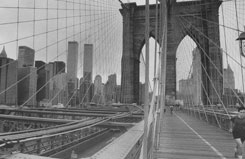 The members of the four London lodges all were loyal subjects of His Majesty and the good Protestant believers, but, for the reasons already stated, felt the need for absolute freedom of conscience. The first article of Anderson's Constitution that they wrote clearly expresses this requirement:
The members of the four London lodges all were loyal subjects of His Majesty and the good Protestant believers, but, for the reasons already stated, felt the need for absolute freedom of conscience. The first article of Anderson's Constitution that they wrote clearly expresses this requirement:
"A Mason is obliged by his Tenure, to obey the moral law; and if he rightly understands the Art, he will never be a stupid Atheist or an irreligious Libertine. (Note: In the 18th Century, "Libertine''meant "Ignorant.") But though in ancient times Masons were charged in every country to be of the religion of that country or nation, whatever it was, yet it is now thought more expedient only to oblige them to that religion in which all men agree, leaving their particular Opinions to themselves: that is, to be Good men and True, or Men of Honour and Honesty, by whatever Denomination or Persuasion they may be distinguished; whereby Masonry becomes the Centre of Union and the Means of conciliating true Friendship among persons that must have remained at a perpetual distance. "
"… To oblige them to that religion in which all men agree" does not make a clear reference to any church or metaphysical faith because none is common to all. The founders of modern-day Freemasonry believed the moral "Good men and True, or Men of Honour and Honesty", which they hoped was universal. It seems to exist, based both on the survival instinct and the demands of living amongst others. It encourages cooperation and prohibits harming others, at least under "normal" living conditions.
To make the interconnectedness of all humans "tangible" and to "gather what is scattered,'' they forged the concept of "universal brotherhood". They wanted the Freemasons to be the starting point and the centre of the union of this new humanity.
These men were truly admirable. After all the endless wars, it was an upsetting idea to consider all humans as brothers and want to talk to them without prejudice.
Although many religions are based on the idea of brotherhood, they differ from the brotherhood of Freemasons on several points:
- The religious brotherhood is always "vertical" because it connects humans as children of a higher being, their Father.
- Being all from the same almighty father is reassuring.
- The brotherhood that results is based on submission to this father, even to those who represent him.
- It is synonymous with love, which, like in families, should prevail among church members.
- In religion, brotherhood is almost always confined to their followers and to them alone.
- Some churches have tried to impose their beliefs even on unbelievers with fire and sword, not very appropriate means to spread love and brotherhood...
- The Masonic brotherhood is "horizontal." It springs from an individual decision to perceive others as one's brothers and, in turn, to be recognised as their brother. At first glance, man is suspicious of all those who differ from him. Making a voluntary choice to consider others, all others – directly, without intermediaries – as a brother requires a great effort. The "Masonic method" prepares the "initiated" to provide and offers them the necessary tools.
- The resulting brotherhood is based on freedom.
- More than love, it expresses a tie relationship. This involves understanding and feeling how humans are interdependent both among themselves and with everything around them. The visceral nature of this relationship can be assumed for a long time, through observation of nature in general and of human foetuses at different stages of development. In the 19th Century, this link was proven by Darwin's theory of evolution of the species, then re-confirmed even more strongly a century later by ecology.
- Current scientific evidence demonstrates that diversity is the necessary prerequisite for the development and maintenance of life on earth. The founders of modern-day Freemasonry had an intuition of the vital importance of diversity. Their concept of "universal brotherhood" teaches understanding of all worldviews and, in view of the foregoing about development, respect for all forms of life.
- The Freemasons have never sought to impose adherence to their movement by force. All "man of honour" should be included, but it fully depends upon their free will.
The religious brotherhood and the Masonic brotherhood are not mutually exclusive, each plays a different role.
Man must be able to be both independent and able to submit. His independence of mind helps him to learn, to understand, to develop a critical eye. On the other hand, his interdependence with others, thus the need to live in societies, sometimes forces him to obey. Society enables him to survive and also to compare his knowledge with that of others, to ensure its validity, to enrich it and make it useful. Finally, the dual nature of the individual and the parcel of different groups helps him to choose between sometimes conflicting opinions and interests (his and the community), and then to act on that choice. These contradictory and complementary qualities, seemingly irreconcilable, can coexist alternately.
Moral requirement
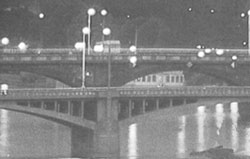 Freemasonry is a worldview, an initiations method of learning and a moral requirement. Its founders were aware that to reach the right destination, their project should be based on "values" and framed by them.
Freemasonry is a worldview, an initiations method of learning and a moral requirement. Its founders were aware that to reach the right destination, their project should be based on "values" and framed by them.
The values of modern-day Freemasonry come from secular and religious morality, largely Protestant, from England of the 17th and 18th Centuries. They were supplemented by other contributions. His Majesty's good subjects and, for the most part, faithful believers, our ancestors were sure of the validity of their convictions, but were able to dissect their opinions. They admitted that Freemasonry could evolve, transform itself and diversify across countries. They knew that if the "fixed point" of Archimedes was essential to "move the earth," it could be found at various locations.
If handled properly, the Masonic method excludes any dogmatism. On the contrary, modern-day Freemasonry from its origins was dedicated to diversification as each Mason, every lodge, every obedience and country deciphers its content according to their personal and collective cultures. Anderson's Constitution promotes respect and tolerance. One of the keys of this system lies in the symbol of "mosaic square"...
Conclusion
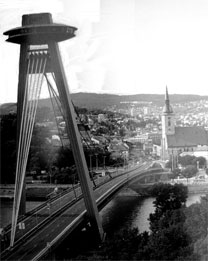 Starting in the Renaissance, accentuated in the 17th Century, confirmed in the 18th, the unification of the world continues until today and tomorrow. Today, countries are torn between conquest and the association. They try to work together peacefully, but arm themselves to the point of being able to destroy all mankind. Some believe that being able to impose their rule by intimidation, without reaching the extreme of a world war, but they walk the tightrope, risking sending all of us diving into the abyss, including themselves.
Starting in the Renaissance, accentuated in the 17th Century, confirmed in the 18th, the unification of the world continues until today and tomorrow. Today, countries are torn between conquest and the association. They try to work together peacefully, but arm themselves to the point of being able to destroy all mankind. Some believe that being able to impose their rule by intimidation, without reaching the extreme of a world war, but they walk the tightrope, risking sending all of us diving into the abyss, including themselves.
.
.
Such armament is excessive to the point of madness. Even if a superpower came to monopolise the world, the problems of building a global civilization are so complex that no country or small group of nations, however powerful it may be, cannot control them. Many very large empires are an example of how being driven by one vision makes them doomed to destruction. The difficulty lies not only in the amount of "objective" data to consider, but in the incredible diversity of humans that allows them to adapt and survive under almost any conditions. This diversity resonates with the life instinct our species and it is also for this reason that each group energetically defends its own particularity.
The Masonic initiation opens the mind to diversity, tolerance, respect and love for others. It allows us to rid ourselves of prejudices and to imagine a major reorganisation of our lifestyles that imprison us. Thus, the modern-day Masonry is the beginning of a new civilisation.
If we consider cultural diversity to be just as necessary for the survival of humanity as biodiversity, Free-Masonry continues to be relevant. Are we sufficiently aware of the importance of multiculturalism? Are we worthy of this heritage? Has the Free-Mason mandate been unfulfilled, has the legacy been betrayed?
The Call to Bratislava is a symbolic gesture. The purpose is not the creation of a new "super-obedience", rather the acknowledgement of the necessity for an all-inclusive dialogue, as well as the creation of an environment where it can occur.
(1) « We need to be absolutely clear when we discuss our Pure Antient Masonry that we belong to a secular organisation, that is to say a non-religious organisation. (...) Freemasonry itself, as we all know, is neither a substitute for nor an alternative to religion. (...) Freemasonry, in fact, absolutely fails to meet any of the tests of what it is to be a religion, set by the late Reverend Professer John MacQuarrie, former Lady Margaret Professor of Divinity at Oxford. The fact that men from different faiths can meet easily in harmony and friendship, without compromising their particular religions beliefs, demonstrates that one of the greatest strengths of the Craft, dating from its earliest beginnings, is that of Tolerance ».
Quarterly Communication Speeches - September 2011 - Deputy Grand Master Jonathan Spence address.
Read Considerations and Explanations.
Add your voice to the Forum and imagine how to reunite all Freemasons. (Private area, please register.)
If you agree with the vision of Freemasonry that you just read,
please signThe Call to reunite all Freemasons (Call of Bratislava) (= Appel de Bratislava)
Donations to help maintain the site for the next several years. Secure payment by Paypal.

Thank you.
Fraternally Peter Bu
............... The free-flow of ideas prevented by 50,000 contributions ..........
http://modern-freemasonry.com was created to promote the free exchange of ideas on Freemasonry.
This free-flow of ideas was prevented by 50,000 contributions that had nothing to do with Freemasonry, wanting only to use this site for advertising.
I've cleared all this pollution to enable relevant conversation to resume.
Thanks in advance for your thoughts in the FORUM on topics that interest the Freemasons.






